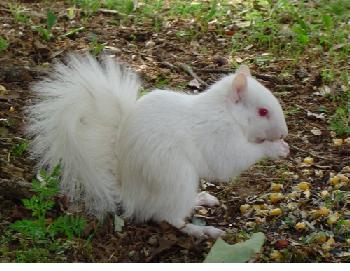|
|
|---|
Thursday, December 24, 2009
 Leonid Rogozov was born in a remote village in Eastern Siberia. His father was killed in World War II in 1943. In 1953 he finished a secondary school in Minusinsk, Krasnoyarsk Krai and was admitted to the Leningrad Pediatric Medical Institute (now Saint Petersburg). After graduating in 1959 as a general practitioner, he started clinical training to specialise in surgery. In September 1960, at the age of 26, he interrupted his training and joined the sixth Soviet Antarctic Expedition as a doctor.
Leonid Rogozov was born in a remote village in Eastern Siberia. His father was killed in World War II in 1943. In 1953 he finished a secondary school in Minusinsk, Krasnoyarsk Krai and was admitted to the Leningrad Pediatric Medical Institute (now Saint Petersburg). After graduating in 1959 as a general practitioner, he started clinical training to specialise in surgery. In September 1960, at the age of 26, he interrupted his training and joined the sixth Soviet Antarctic Expedition as a doctor.From September 1960 until October 1962, Rogozov worked in Antarctica, including his role as the sole doctor in a team of thirteen researchers at the Novolazarevskaya Station, which was established in January 1961. 

On the morning of 29 April 1961, Rogozov experienced general weakness, nausea, and moderate fever, and later pain in the upper right portion of the abdomen. All possible conservative treatment measures did not help. By 30 April signs of localised peritonitis became apparent, and his condition worsened considerably by the evening. Mirny, the nearest Soviet research station, was more than 1,000 miles from Novolazarevskaya. Antarctic research stations of other countries did not have an aircraft. Severe blizzard conditions prevented aircraft landing in any case. Rogozov had no option but to perform the operation on himself.
The operation started at about 22:00 on 30 April with the help of a driver and meteorologist, who were providing instruments and holding a mirror to observe areas not directly visible, while Rogozov was in a semi-reclining position, half-turned to his left side. A solution of 0.5% novocaine was used for local anaesthesia of the abdominal wall. Rogozov made a 10-12 cm incision and proceeded to expose the appendix. General weakness and nausea developed about 30–40 minutes after the start of the operation, so that short pauses for rest were repeatedly needed after that. According to his report the appendix was found to have a 2x2 cm perforation at its base. Antibiotics were administered directly into the peritoneal cavity. By about midnight the operation was complete.
After a brief period of postoperative weakness, the signs of peritonitis disappeared. Rogozov's temperature returned to normal after five days, and the stitches were removed seven days after the operation. He resumed his normal duties in about two weeks. The self-surgery captured the imagination of the Soviet public at the time. In 1961 he was awarded the Order of the Red Banner of Labour.
source: Wikipedia
0 Comments:
Subscribe to:
Post Comments (Atom)














